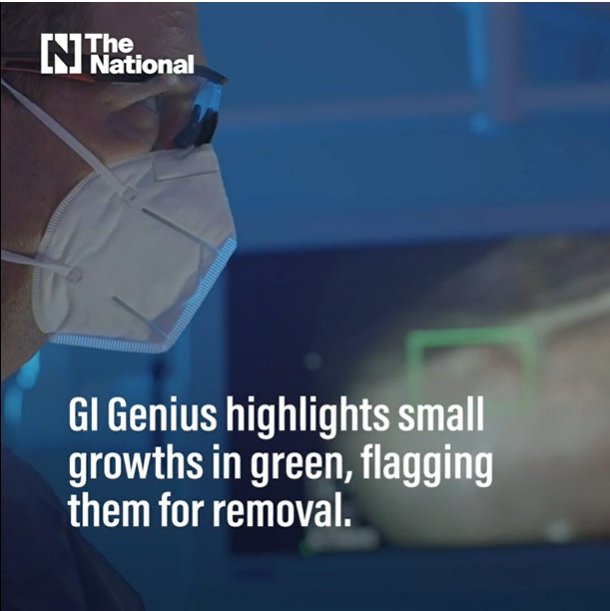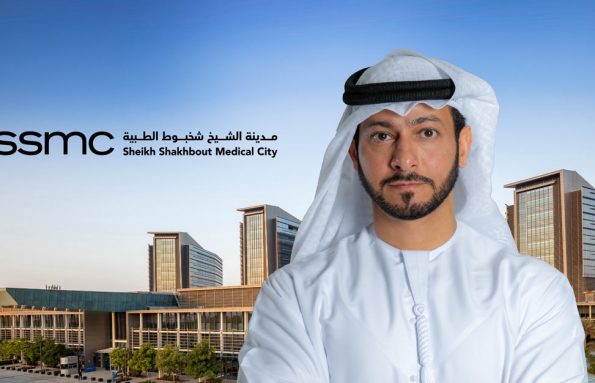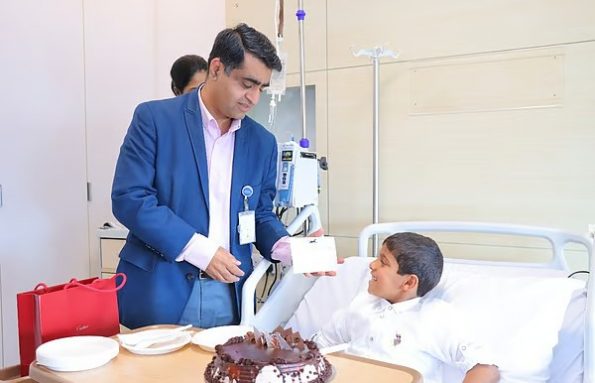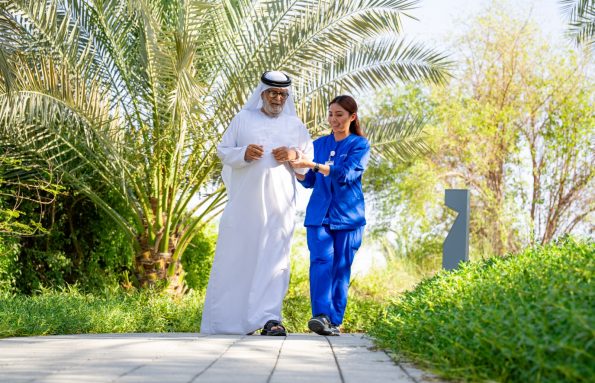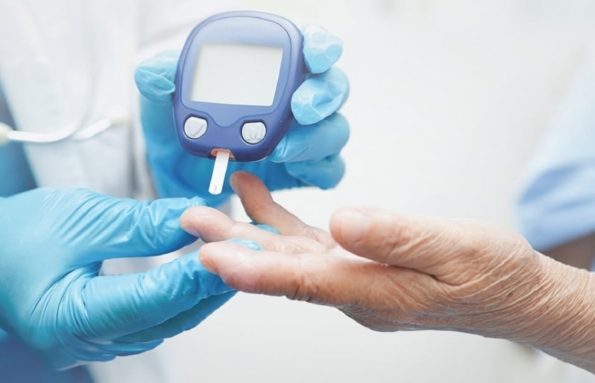Doctors in Abu Dhabi are using new technology to spot hard-to-find colon polyps that could turn cancerous, reducing the risk of death by half.
GI Genius, a computer-aided polyp detection system, uses augmented reality to highlight the small growths in green to make it easier for surgeons to identify and remove them before they can become malignant.
The revolutionary technology was approved in the US last year and brought to Sheikh Shakhbout Medical City (SSMC) in the autumn by Dr Michael Wallace, who led the clinical trial in the US.
It has been used on about 50 patients so far, he said.
“GI Genius is an artificial technology that creates a so-called augmented reality,” said Dr Wallace, consultant and chairman of the gastroenterology division at the SSMC.
“When we do a colonoscopy to prevent colon cancer, our goal is to find small polyps and remove them before they turn malignant.
“But some polyps are very hard to see. So, we have developed an artificial intelligence system and trained the computer to recognise these very difficult-to-see polyps.”
The technology was tested in three large clinical trials, where it significantly increased doctors’ ability to detect polyps, reducing the risk of death by 50 per cent, he said.
“I actually led the US clinical trial before I came here to Abu Dhabi. So, it was a nice coincidence we could bring this technology I was very familiar with,” Dr Wallace said.
“It kind of democratises colonoscopy because you are using the technology to find these polyps, so it becomes less dependent on which doctor does your colonoscopy.
“It is a little bit like a back-up camera on your car. It makes all of us a little bit better drivers.”
The SSMC, a joint-venture partnership between the Abu Dhabi Health Services Company, better known as Seha, and Mayo Clinic, is marking Colorectal Cancer Awareness Month this March by launching a campaign to encourage people to come forward for colorectal screening.
Colorectal cancer is the second most common cancer in the UAE and one of the leading causes of cancer deaths across the country.
Red flags include seeing blood in stool, or a change in bowel habits, particularly an increase in constipation, as well as any abdominal pain or weight loss.
But because most symptoms develop in the later stages, screening is key.
“One of the unique things about colon cancer is if you have a precursor, a polyp, that is not yet cancer, by finding and removing these polyps, we actually prevent the cancer from ever developing,” said Dr Wallace.
“So, it is a truly preventative procedure, not just for early detection.”
People in the UAE between the ages of 40 and 45 are encouraged to come forward for screening, which is usually covered by health insurance.
“Particularly in the Emirates, there is an increasing trend towards people getting colon cancer at a young age,” said Dr Wallace.
“And so, that is why we recommend screening in the Emirates at a young age, 40 to 45, as opposed to the United States, where it is typically 45 to 50.
“We don’t think it is genetic. It is a new phenomenon. We think it is probably related to diet.”
How does it work?
During a colonoscopy, a long, flexible tube with a camera at the end is inserted into the rectum, allowing doctors to see the inside of the entire colon for any signs of cancer or precancerous lesions.
The GI Genius system uses hardware and software that can highlight a potential lesion.
According to the FDA, the system generates markers, which are accompanied by low-frequency sound, and superimposes them on the video from the endoscope camera when it identifies a potential lesion.
These signs signal that further assessment may be needed.

